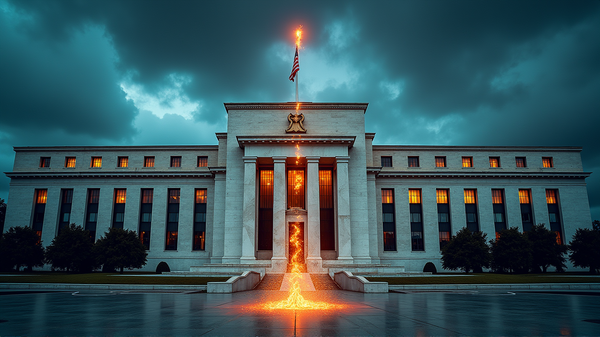Trump's Bold Move: Crypto & Private Equity Invade $12.5T 401(k) Market
A Daring Step Into the Unknown
In a groundbreaking move, President Donald Trump announced an executive order to open up the massive $12.5 trillion 401(k) market to investments in crypto, private equity, and real estate. This unprecedented directive calls for revisions to the ERISA rules, seeking to harmonize the standards applied to alternative and traditional assets. According to AInvest, this could redefine retirement investing as we know it.
Broadening the Horizons of Retirement
For years, investors have been limited to traditional equities and bonds in their 401(k)s. Trump’s plan envisions a broader array of options, including digital currencies, reflecting his intent to integrate alternative assets into mainstream financial portfolios. Critics have raised alarms about the volatility and illiquidity risks, but supporters argue it’s time to bring modern capital instruments into the retirement sphere.
Regulatory Revisions at the Heart of Change
With the SEC and other federal agencies at the helm, this initiative aims to automatically align digital and private investments with historical standards of prudence. By doing so, it removes legal hurdles that have long prevented these assets from being part of retirement plans. The move could see a wave of crypto and private market participation, facilitated by major asset management firms.
A Philosophical Transformation in Financial Policy
This directive is part of a broader Trump administration agenda to weave digital assets into the economic fabric of the nation. Past initiatives like the Strategic Bitcoin Reserve, alongside the recent GENIUS Act regulating stablecoins, signal a long-term commitment to this transition. The appointment of David Sacks as the White House’s crypto czar further underscores this commitment.
Navigating the Road Ahead
While the directive heralds digital assets as the future, its success pivots on effective execution by federal bodies. Key elements such as custody and valuation requirements will be critical in shaping the new framework. Asset managers such as Blackstone and KKR stand to benefit, having lobbied for greater access to retirement funds.
With Trump’s audacious move, the U.S. retirement landscape could see a paradigm shift. Will this herald a new era of diversified investment strategies, or open up new risks for investors? Only time will tell if this risk pays off, but one thing is certain: the financial world will be watching with bated breath.




